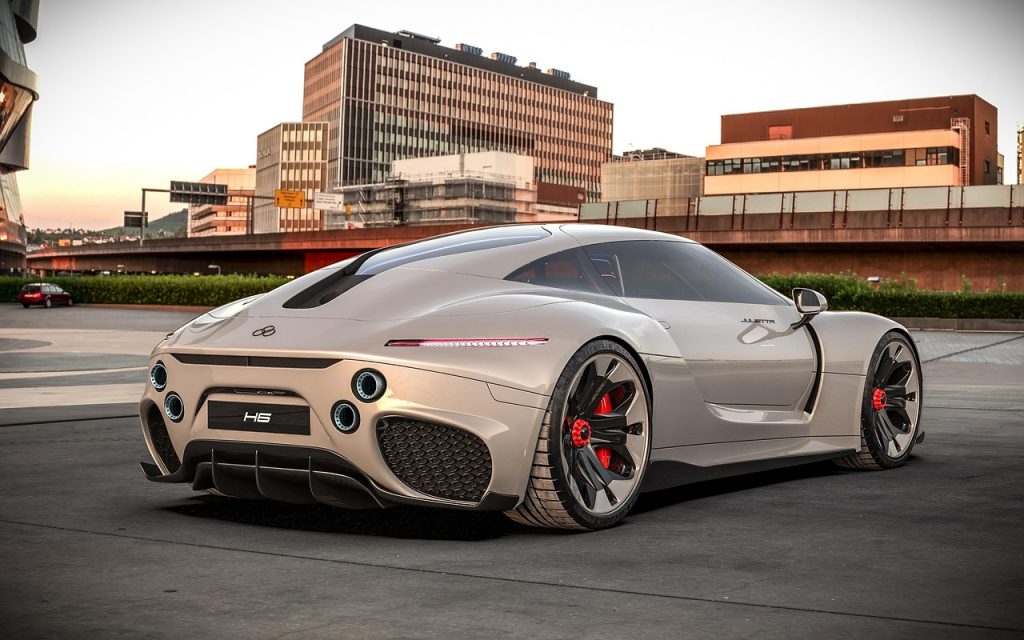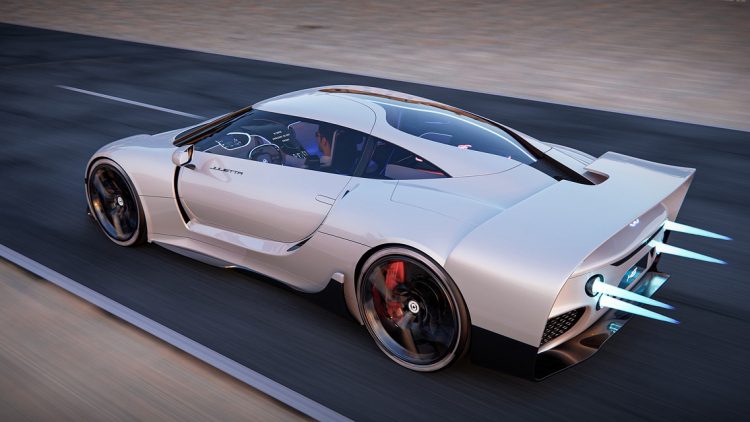In this article, we will explore whether new entrants to the luxury automobile market have the potential to disrupt the status quo. We will examine the factors contributing to the rise of new competitors, how these companies are differentiating themselves, and what the future holds for the traditional luxury brands. Can the old guard maintain their dominance, or is the luxury automotive market on the cusp of a transformation?
1. The Dominance of Traditional Luxury Brands
The traditional luxury automobile market is characterized by iconic brands that have consistently delivered high-performance vehicles, elegant designs, and superior craftsmanship. These brands have established loyal customer bases and cultivated rich histories, making them nearly synonymous with the concept of luxury.
- Mercedes-Benz: Known for its refined design, cutting-edge technology, and powerful engines, Mercedes-Benz has long been a leader in the luxury market. The brand has a history that dates back over a century and is associated with high-quality craftsmanship and a reputation for excellence.
- BMW: BMW has positioned itself as the “ultimate driving machine,” focusing on performance, agility, and driving pleasure. With its iconic sports sedans, coupes, and SUVs, BMW has built a reputation for delivering exhilarating driving experiences while maintaining luxury and comfort.
- Audi: Audi’s commitment to advanced technology and sleek design has made it a favorite among luxury car buyers. The brand is known for its Quattro all-wheel drive system, cutting-edge infotainment systems, and focus on innovation.
- Lexus: As Toyota’s luxury division, Lexus has established itself as a leader in reliability, comfort, and exceptional customer service. Lexus vehicles are known for their smooth rides, luxurious interiors, and a reputation for durability.
- Porsche: Porsche has carved out a unique niche in the luxury sports car market. With its iconic 911, the brand is synonymous with high-performance engineering and precision handling, attracting enthusiasts who demand the ultimate driving experience.
These brands have enjoyed decades of success, and their vehicles are often viewed as symbols of status and wealth. However, the luxury car market is changing, and there are several factors contributing to the rise of new competitors.
2. Changing Consumer Preferences and Expectations
The luxury automotive market is being reshaped by a variety of factors, including changing consumer preferences, environmental concerns, and technological advancements. Today’s consumers are more discerning than ever, and their expectations go beyond just aesthetics and performance.
- Sustainability and the Rise of Electric Vehicles: One of the most significant changes in the luxury market is the growing demand for environmentally friendly vehicles. As climate change concerns continue to grow, more consumers are prioritizing sustainability when purchasing luxury cars. Electric vehicles (EVs) have become a key component of this shift, and many luxury car buyers are looking for eco-friendly options that still offer the performance and prestige they desire. Traditional luxury brands are responding to this demand by introducing electric models, such as the Mercedes EQS, BMW iX, and Audi e-tron. However, new players like Tesla, Lucid Motors, and Rivian have made significant strides in the electric vehicle space, offering advanced technology, impressive performance, and a sustainable future. These newcomers have captured the attention of consumers who are seeking high-end, environmentally conscious alternatives.
- Technology and Connectivity: Today’s luxury car buyers expect their vehicles to be equipped with the latest technology and connectivity features. From advanced infotainment systems to autonomous driving capabilities, consumers are increasingly seeking cars that integrate seamlessly with their digital lifestyles. Traditional luxury brands have made significant investments in technology, with offerings like Mercedes-Benz’s MBUX system and Audi’s Virtual Cockpit. However, new players are also making waves in this area. Tesla, for example, is known for its over-the-air software updates and cutting-edge autonomous driving capabilities. Rivian and Lucid Motors have also introduced innovative technologies, including advanced driver-assist systems and smart infotainment features.
- Personalization and Customization: Another key factor driving change in the luxury automotive market is the demand for personalization. Consumers today want vehicles that reflect their individual tastes and lifestyles. This has led to an increased focus on customization options, from unique interior materials to bespoke exterior designs. Traditional luxury brands offer a wide range of customization options, but new entrants are also catering to this desire for individuality. Tesla, for example, allows owners to customize their cars through software updates and the option to select from various interior and exterior options. Rivian and Lucid Motors have also introduced customizable features, allowing consumers to choose from a range of colors, finishes, and accessories.
- Experience and Customer Service: The luxury automobile market is not just about the car itself—it’s also about the overall experience. Consumers expect exceptional customer service, exclusive events, and personalized attention when purchasing a luxury vehicle. Traditional luxury brands have long been known for offering top-tier customer experiences, but new players are stepping up their game as well. Companies like Tesla have revolutionized the buying process with their direct-to-consumer sales model and online ordering platforms. Rivian and Lucid Motors are also focusing on creating unique experiences for their customers, including personalized delivery options and exclusive brand events.

3. New Players in the Luxury Automotive Market
As the luxury automotive market evolves, several new players have emerged, offering innovative vehicles that challenge the dominance of traditional brands. These companies are leveraging cutting-edge technology, sustainability, and fresh design philosophies to appeal to a new generation of luxury car buyers.
- Tesla: Perhaps the most notable disruptor in the luxury automotive market, Tesla has revolutionized the industry with its electric vehicles. Known for its impressive range, exceptional performance, and futuristic design, Tesla has become a household name in the EV space. The company’s Model S, Model X, Model 3, and Model Y have gained a loyal following among luxury car buyers, and Tesla continues to lead the charge in electric vehicle technology. Tesla’s success has been fueled by its ability to offer advanced features such as autonomous driving, over-the-air software updates, and an intuitive user interface. The company’s direct-to-consumer sales model and online ordering platform have also helped to streamline the purchasing process, making it easier for customers to buy a luxury vehicle.
- Lucid Motors: Lucid Motors is another electric vehicle startup that is challenging traditional luxury brands. With its Lucid Air sedan, the company aims to offer a premium electric vehicle with a focus on performance, luxury, and sustainability. The Lucid Air has garnered attention for its impressive range, luxurious interior, and cutting-edge technology. Lucid Motors is positioning itself as a direct competitor to brands like Mercedes-Benz and BMW, offering a high-end alternative for consumers who want a sustainable, performance-driven vehicle. The company’s commitment to quality craftsmanship, advanced technology, and sustainability has made it a rising star in the luxury electric vehicle market.
- Rivian: Rivian is an electric vehicle manufacturer that has captured the attention of the luxury SUV and truck market. The company’s all-electric R1T pickup truck and R1S SUV are designed to cater to consumers who want both rugged performance and luxury features. Rivian’s vehicles are equipped with advanced off-road capabilities, impressive towing capacity, and high-tech interiors, making them a viable alternative to traditional luxury brands. Rivian’s focus on adventure and exploration, combined with its commitment to sustainability, has positioned the company as a strong competitor in the luxury vehicle market. The company has also attracted significant investment, further solidifying its place as a potential disruptor in the industry.
- Other Emerging Brands: In addition to Tesla, Lucid Motors, and Rivian, several other startups are entering the luxury automotive space. Companies like Fisker, NIO, and Byton are developing electric vehicles that blend performance, luxury, and sustainability. These companies are attracting interest from consumers who are looking for new alternatives to traditional luxury brands.
4. The Future of the Luxury Automotive Market: Will New Players Overcome the Status Quo?
As new players continue to enter the luxury automotive market, it raises the question of whether traditional brands will be able to maintain their dominance or if the landscape will be reshaped entirely.
- Brand Loyalty and Heritage: One of the key factors that will help traditional luxury brands maintain their position is the strong sense of brand loyalty they have cultivated over the years. Consumers who have been driving Mercedes-Benz, BMW, or Audi vehicles for decades may be hesitant to switch to newer brands, even if those brands offer more advanced technology or better sustainability. However, new players are beginning to create their own loyal followings by offering vehicles that appeal to the changing tastes of consumers. Tesla, for example, has developed a devoted fanbase that values the company’s innovative approach to technology and sustainability.
- Adaptation and Innovation: The future of the luxury automotive market will depend on how traditional brands adapt to the changing landscape. Many luxury brands are already investing heavily in electric vehicles, autonomous driving technology, and advanced infotainment systems. If these brands can continue to innovate and meet the evolving demands of consumers, they will remain competitive in the luxury market.
- Disruption vs. Tradition: Ultimately, the future of the luxury automotive market may not be about a battle between new players and traditional brands, but about the coexistence of both. As new players disrupt the market with innovative electric vehicles, traditional brands will likely evolve to meet new demands while retaining the qualities that have made them successful in the past. The future of luxury cars may lie in a balance between tradition and innovation, with both established and new brands contributing to the evolving definition of luxury.
5. Conclusion: The Road Ahead for the Luxury Automotive Market
The luxury automotive market is at a crossroads. While traditional brands have long dominated the industry, new players are emerging with electric vehicles that challenge the status quo. As consumer preferences shift towards sustainability, technology, and performance, these new players are offering compelling alternatives that appeal to a new generation of luxury car buyers.
However, traditional luxury brands are not sitting idly by. They are investing heavily in electric vehicles, autonomous driving technology, and advanced infotainment systems to stay relevant in a rapidly changing market. The key to success for both established and new brands will be their ability to innovate while retaining the qualities that define luxury—quality, craftsmanship, and a premium driving experience.
In the end, the future of the luxury automotive market will likely be one of coexistence and evolution, where both old and new players have a role to play in shaping the future of the industry.


































Discussion about this post